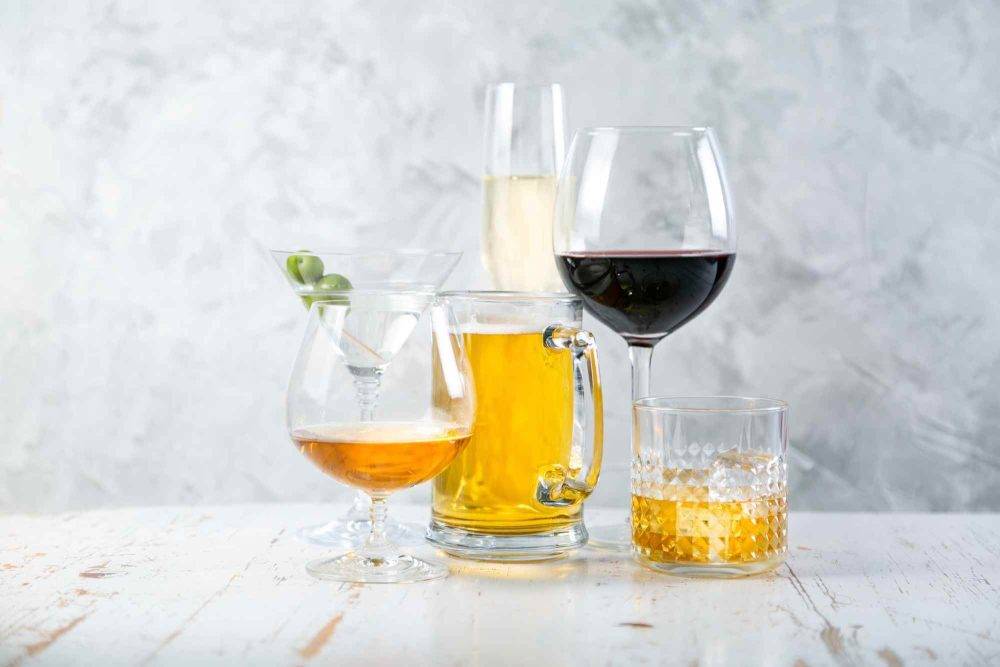
No cheers: The treasury goals to curb alcohol consumption due to its function in well being issues and street deaths.
The treasury’s proposal final 12 months to improve taxes on alcohol — wine, beer and spirits — in a bid to curb extreme consumption is unlikely to be efficient, specialists say.
The finance minister, Enoch Godongwana, is predicted to make the controversial announcement in his price range speech subsequent month — the primary beneath the coalition authorities fashioned final 12 months after the ANC misplaced its parliamentary majority within the basic elections.
Late final 12 months, the treasury proposed setting a minimal value for alcoholic drinks to cut back dangerous consumption, which is a drain on the nation’s well being sources.
In accordance with a coverage evaluation doc launched by the division, the minimal unit value would forestall producers and retailers from absorbing a few of the tax improve and providing massive reductions on alcoholic merchandise.
Whereas elevating taxes may improve income “to a sure extent”, it may not “encourage behavioural change as the federal government would have needed or anticipated it to” cautioned Evádne Bronkhorst, a chartered tax adviser specialising in oblique taxes at audit agency Forvis Mazars.
“It might truly improve the black market and that will expose South African shoppers to purchasing alcohol that doesn’t meet rules, which can also be not conducive to preserving South African shoppers’ well being.
“I feel the federal government needs to be cautious in how they go about this and handle it,” she advised the Mail & Guardian this week, on the sidelines of a roundtable dialogue forward of the price range.
The treasury opened the proposed tax for public remark in November, saying it was supposed to curb street deaths brought on by extreme alcohol consumption and to safeguard shoppers’ well being.
“The dangerous use of alcohol is likely one of the main threat elements for inhabitants well being worldwide and has a direct affect on many health-related targets of the sustainable improvement objectives,” the treasury mentioned within the doc.
It famous a examine carried out by the World Well being Organisation which mentioned that, globally, the dangerous use of alcohol resulted in additional than 3.3 million deaths yearly and was one of many causes of ailments and accidents.
In accordance with the treasury, South Africa has been making use of an excise tax framework which supplies a suggestion “for the tax incidence as a share of the weighted common retail promoting value of alcoholic drinks since 2004”.
Tax incidence refers to who bears the relative burden of a brand new or current tax that’s levied.
The rule of thumb for the tax incidence for wine, beer and spirits is ready at 11%, 23% and 36%, respectively.
When the treasury applies measures, such because the sugar tax which was launched in 2018, to spice up well being outcomes, it primarily means some shoppers are not capable of afford the merchandise that comprise the offending elements, mentioned Althea Soobyah, who’s the top of tax at Forvis Mazars.
“On the one hand, you’re attempting to curb the fatality fee by growing the alcohol taxes, and on the opposite aspect, what’s the affect of that?
“Who’s going to hold [the tax] from a producer, retailer and alcoholic drinks producer perspective?” Soobyah requested.
She identified that one of many outcomes of imposing such taxes on the patron was that retailers successfully missed out on some income — affecting their capacity to pay extra tax.
The treasury famous that the affordability of alcoholic drinks, decided by their relative value, charges of inflation and shopper earnings, had been thought of to be some of the necessary elements affecting consumption.
The treasury insists that tax on alcohol and pricing insurance policies are efficient instruments to cut back consumption by making alcoholic drinks unaffordable to some.
The proposed tax would have an effect on wine, beer and spirits primarily based on their alcohol content material. Spirits, which embrace tequila, rum and gin, can be taxed at a a lot greater fee than different classes of alcohol.
Wine with low alcohol content material would nonetheless be assigned the present excise responsibility fee of R4.96 per litre, whereas wine with an alcohol content material starting from 4.5% to 9% per litre can be taxed at R6.94 per litre. Wine with a excessive alcohol content material — 9% to 16.5% per litre — can be taxed at R8.93.
However Zandile Makhoba, a shopper economist at Liberty, famous that “alcohol just isn’t a product folks scale back consumption of, even when costs improve”.
“(The) draw back is that we could begin to see consumption of different merchandise decline, to afford the rise of alcohol,” Makhoba advised the M&G.